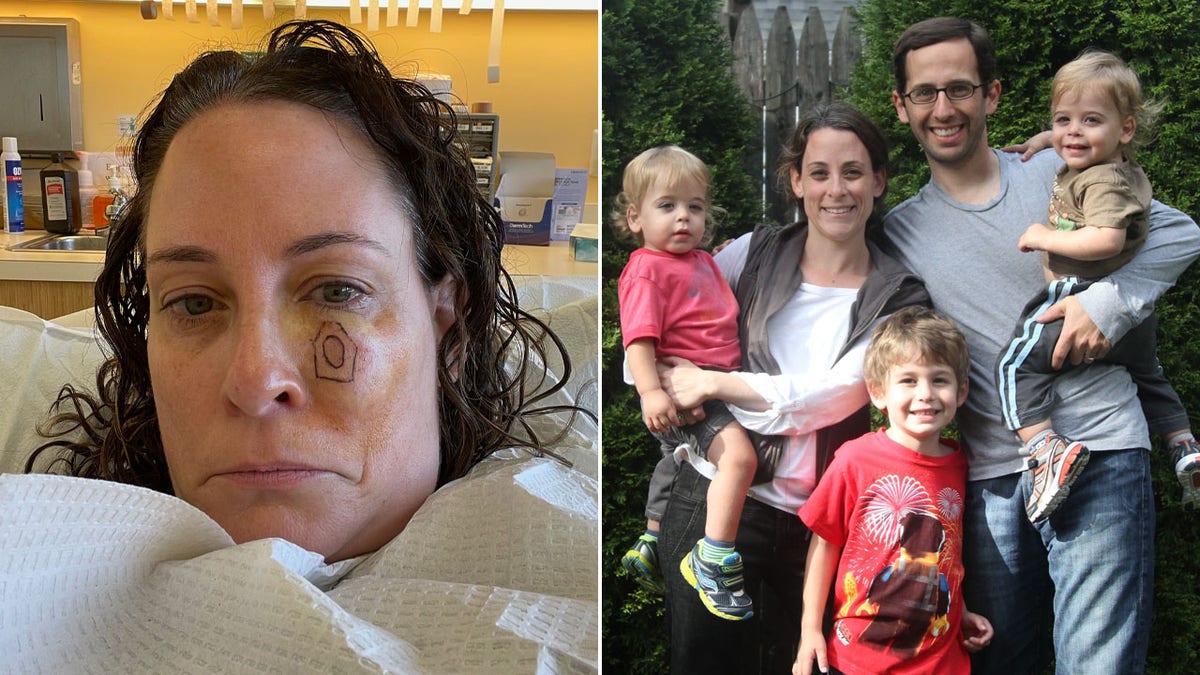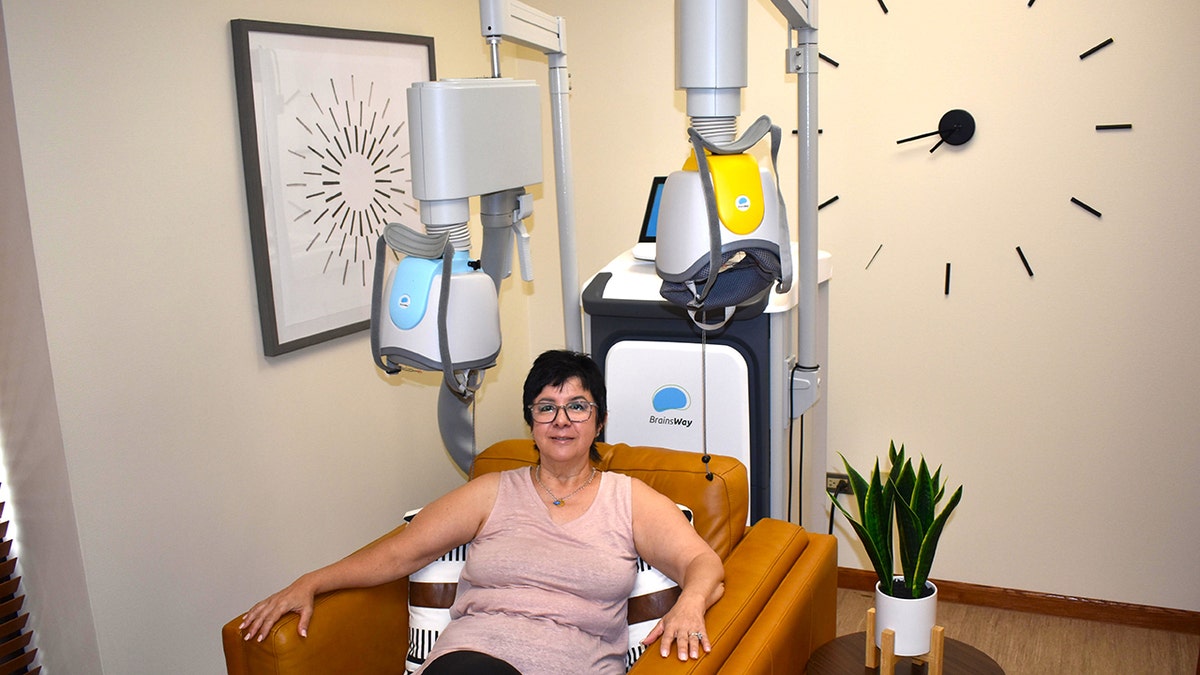Health
Tony Bennett’s battle with Alzheimer’s: What to know about dementia and death

Legendary singer Tony Bennett, who died on July 21 in New York at age 96, had a history of health issues over the years, culminating in his seven-year battle with Alzheimer’s disease.
Although no cause of death was indicated in the announcement of Bennett’s passing, his publicist, Sylvia Weiner, mentioned his 2016 Alzheimer’s diagnosis.
The Alzheimer’s Association, with which Bennett partnered to raise awareness and funds for the disease, also released a public statement.
TONY BENNETT IN HIS OWN WORDS: ‘I FEEL THAT I HAVE BEEN TRULY BLESSED’
“The Alzheimer’s Association joins the world in mourning the loss of Tony Bennett, a great friend and champion of the cause,” said Joanne Pike, president and CEO of the Alzheimer’s Association in Chicago, Illinois, in the statement.
“For decades, Tony inspired the world with his music and, after being diagnosed with Alzheimer’s disease, he continued to use that powerful voice to make a very real difference in inspiring action and change.”
Legendary singer Tony Bennett, who died on July 21 in New York at the age of 96, had a history of health issues over the years, culminating in his seven-year battle with Alzheimer’s disease. (Getty Images)
Several neurology experts shared with Fox News Digital the key points people should know about late-stage Alzheimer’s — and its potentially fatal complications.
Alzheimer’s: Most common form of dementia
Alzheimer’s disease is a cognitive disorder that causes damaging proteins to build up in the brain, according to the Mayo Clinic.
LEGENDARY SINGER TONY BENNETT DEAD AT 96
Around 6.5 million people 65 and older are living with Alzheimer’s in the U.S., with the disease comprising up to 70% of all dementia cases.
Over time, the disease causes brain shrinkage and kills brain cells, resulting in a gradual cognitive decline.
There is currently no cure for Alzheimer’s, although a new drug called Leqembi, which works to remove plaque from the brain, recently received FDA approval.
Early signs of Alzheimer’s include episodes of short-term memory loss. It eventually leads to memory loss and an inability to function.
There is currently no cure for Alzheimer’s, although a new drug called Leqembi, which works to remove plaque from the brain, recently received FDA approval.
“The drug has been shown to slow down disease progression in the early stages of the disease,” Dongxu Sun, PhD, an Alzheimer’s research expert in San Francisco, told Fox News Digital.
“Leqembi, like all other plaque-removing drugs, can lead to side effects such as brain swelling and bleeding because it removes plaques through enhancing neuroinflammation.”
Late-stage Alzheimer’s disease
During the advanced stages of Alzheimer’s, patients experience severe cognitive decline, according to Dr. Rehan Aziz, a geriatric psychiatrist at Jersey Shore University Medical Center in Neptune, New Jersey and associate professor of psychiatry and neurology at Hackensack Meridian School of Medicine.

During late-stage Alzheimer’s, patients experience severe cognitive decline. (iStock)
“In this stage, individuals may lose the ability to recognize familiar people, including family members and friends,” he told Fox News Digital.
“They may have difficulty communicating their needs.”
People with late-stage disease often need help with routine activities like getting dressed, eating and cutting food, showering, combing their hair or brushing their teeth, using the toilet and even walking, the doctor said.
NEW DEMENTIA DRUG ‘HAS GIVEN ME HOPE’: ALZHEIMER’S PATIENTS REVEAL THEIR STORIES
They may also experience behavioral and psychological changes.
“Individuals can develop a number of psychological symptoms, including apathy, depression, difficulty sleeping at night and aggression,” Aziz said.
These patients often require 24-hour care, either at home with the appropriate services or in a skilled nursing facility, the doctor said.

Over time, the disease causes brain shrinkage and kills brain cells, resulting in a gradual cognitive decline. (iStock)
“Caregivers have high rates of depression, as well as increased chances of becoming physically sick,” he warned.
“It is important that caregivers take care of themselves and seek support.”
Aziz often refers caregivers to Alzheimer’s support groups as well as to mental health clinicians if needed, he said.
When does Alzheimer’s become fatal?
Unlike cancer or Lou Gehrig’s disease, Alzheimer’s disease is not a direct cause of death, according to Dr. Arif Dalvi, director of the Memory Disorders Center at St. Mary’s Medical Center in West Palm Beach, Florida.
“However, as the disease state progresses, the patient’s ability to take care of themselves, even with help, declines considerably,” he told Fox News Digital.
“This general deconditioning leads to complications that are directly responsible for death.”
VISION PROBLEMS COULD MEAN HIGHER DEMENTIA RISK, STUDY FINDS: ‘EYE HEALTH AND BRAIN HEALTH ARE CLOSELY LINKED’
The average life expectancy for someone with Alzheimer’s disease is around 8-10 years, according to the Alzheimer’s Society. Longevity is shorter for those who are diagnosed in their 80s or 90s.
“Based on a person’s health condition and lifestyle, some patients decline quickly and succumb to the disease within a few years — while others can live for many years after diagnosis,” said Sun of San Francisco.
Typical cause of death for Alzheimer’s patients
In addition to causing memory loss, Alzheimer’s also leads to a decline of the immune system, the cardiovascular system and others, said Sun.
“These declines can lead to the development of fatal complications like aspiration pneumonia, stroke or heart disease,” he explained.

Patients with late-stage Alzheimer’s often require 24-hour care, either at home with the appropriate services or in a skilled nursing facility. (iStock)
Dalvi commonly sees Alzheimer’s patients succumb to infections, which can be fatal.
“A combination of disease progression, general debility from aging and decline in hygiene due to an inability to take care of themselves leads to susceptibility to infections,” he explained.
“Pneumonia is the most common, although urinary tract infections also are seen fairly often,” he continued. “In the debilitated person, this can lead to sepsis and death.”
“Some patients decline quickly and succumb to the disease within a few years, while others can live for many years after diagnosis.”
Other potential causes of death include malnutrition as a result of not eating or having trouble eating, accidentally inhaling foods or liquids or falls/accidents caused by weakness or wandering.
That’s according to Dr. Jasdeep S. Hundal, a board-certified clinical neuropsychologist and associate professor of psychiatry and neurology at the Hackensack Meridian School of Medicine in New Jersey.
Caring for people with late-stage Alzheimer’s
Maintaining adequate nutrition and hydration is extremely important for those with advanced dementia, Dalvi, said, as it supports general well-being and immune function.
Because patients with Alzheimer’s can forget to eat, the doctor said their weight should be monitored on a regular basis.
CLICK HERE TO SIGN UP FOR OUR HEALTH NEWSLETTER
“Feeding should be supervised, as difficulties with swallowing can lead to aspiration pneumonia,” he warned.
“Minimizing unnecessary medications and regular medication review is also important.”
Additionally, he emphasized the need to minimize fall risk.
“It is also important to take care of the emotional needs of the caregivers and family during the late stage of the condition,” Dalvi added.

Health
7 important health stories you might have missed this week: Catch up here

Every day of the week, Fox News Digital publishes a range of health pieces to keep you up-to-date on the most important wellness news.
We cover cutting-edge medical research, breakthrough medications, mental health challenges, personal medical dramas and more.
In case you missed them, here are a few of our biggest health stories from this week.
CLICK HERE TO SIGN UP FOR OUR HEALTH NEWSLETTER
You can see a full list of recent health pieces at http://www.foxnews/health.
1. Hunger could be tied to sleep, expert says
If you’re feeling hungrier than usual lately, your sleep routine could be the culprit. A nutritional biologist offers tips for regulating sleep and curbing unhealthy cravings. Click here to get the story.
The food you eat can determine the quality of your sleep, according to experts. Here are the latest findings. (iStock)
2. Health agencies issue bird flu update: ‘Alert, not alarmed’
The CDC and WebMD teamed up this week to deliver an hour-long update on Thursday about the current bird flu outbreak. Fox News Digital breaks down the most important points. Click here to get the story.

Experts assured the public that drinking pasteurized milk remains safe. (iStock)
3. Melanoma patients share their stories
For Skin Cancer Awareness Month, two melanoma patients are speaking up about their symptoms, treatment and prevention tips to help others avoid the potentially deadly disease. Click here to get the story.

Abby Weiner, pictured at left and at right with her husband and sons, was diagnosed with melanoma in Oct. 2023. (Abby Weiner)
4. Report reveals staggering discrepancy in health care costs
Patients with private health insurance could be charged up to 300% more than those with Medicare, a new report reveals. Doctors explain the reasons for the sticker shock. Click here to get the story.

The new report published the names and pricing models of more than 4,000 U.S. hospitals. (iStock)
5. Pastor shares important message about depression
A Dallas pastor who fought his own depression battle shares how he overcame the disease – and why it’s so important for those in church leadership to seek help when they need it. Click here to get the story.

Mark Dance, pictured with his wife, Janet Dance, said he suffered through a three-year period of depression while serving as a pastor. (Dr. Mark Dance)
6. Nurse’s depression is cured through breakthrough tech
A Chicago nurse struggled with COVID-19-related PTSD and depression for years until electrical brain tapping therapy finally gave her a new lease on life. Click here to get the story.

“Had I not had this treatment today, I don’t know where I’d be,” the patient told Fox News Digital. (Melanie Eilers)
7. Young vaper shares warning after nearly dying
A 22-year-old man in Nebraska required a double lung transplant due to vaping. Jackson Allard shares his story as a cautionary tale. “I had a 1% chance to live,” he said. Click here to get the story.

This week’s health stories have included a pastor’s depression journey, the sleep-hunger connection, health care cost discrepancies, bird flu updates and more. (Mark Dance, iStock)
For more Health articles, visit www.foxnews.com/health.
Health
Introducing Our Product Reviews Team, and How We Review | Woman's World

Sign Up
Create a free account to access exclusive content, play games, solve puzzles, test your pop-culture knowledge and receive special offers.
Already have an account? Login
Forgot your password?
Get back to the Sign In
Use left and right arrow keys to navigate between menu items.
Use escape to exit the menu.
Health
What You Should Know About the Military Diet: Experts Weigh In | Woman's World

Sign Up
Create a free account to access exclusive content, play games, solve puzzles, test your pop-culture knowledge and receive special offers.
Already have an account? Login
Forgot your password?
Get back to the Sign In
Use left and right arrow keys to navigate between menu items.
Use escape to exit the menu.
-

 World1 week ago
World1 week agoIndia Lok Sabha election 2024 Phase 4: Who votes and what’s at stake?
-

 News1 week ago
News1 week agoSkeletal remains found almost 40 years ago identified as woman who disappeared in 1968
-

 Politics1 week ago
Politics1 week agoUS Border Patrol agents come under fire in 'use of force' while working southern border
-

 Politics1 week ago
Politics1 week agoTales from the trail: The blue states Trump eyes to turn red in November
-

 World1 week ago
World1 week agoBorrell: Spain, Ireland and others could recognise Palestine on 21 May
-

 World1 week ago
World1 week agoCatalans vote in crucial regional election for the separatist movement
-

 World1 week ago
World1 week agoEurope matters to consumers, and so does your vote
-

 Politics1 week ago
Politics1 week agoNorth Dakota gov, former presidential candidate Doug Burgum front and center at Trump New Jersey rally



/cdn.vox-cdn.com/uploads/chorus_asset/file/24748328/236706_Mac_Pro_AKrales_0094.jpg)










